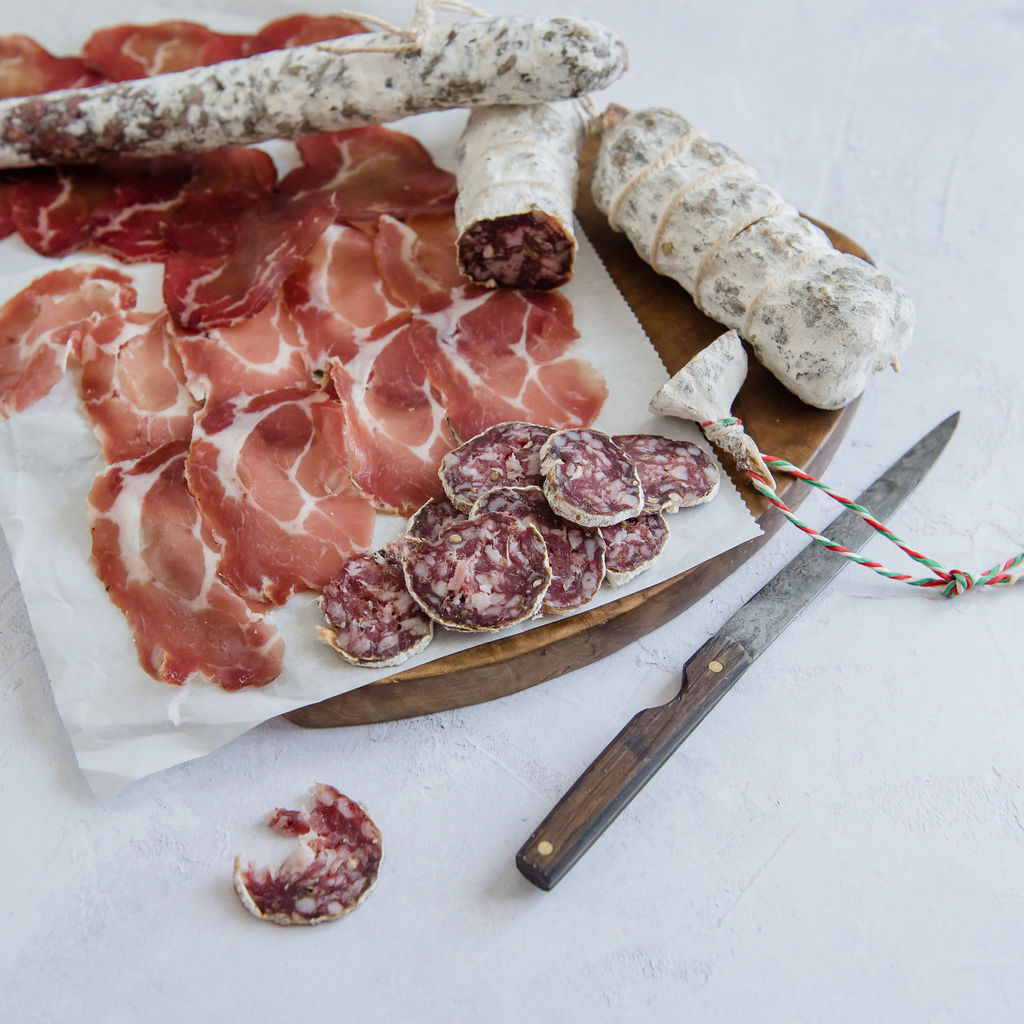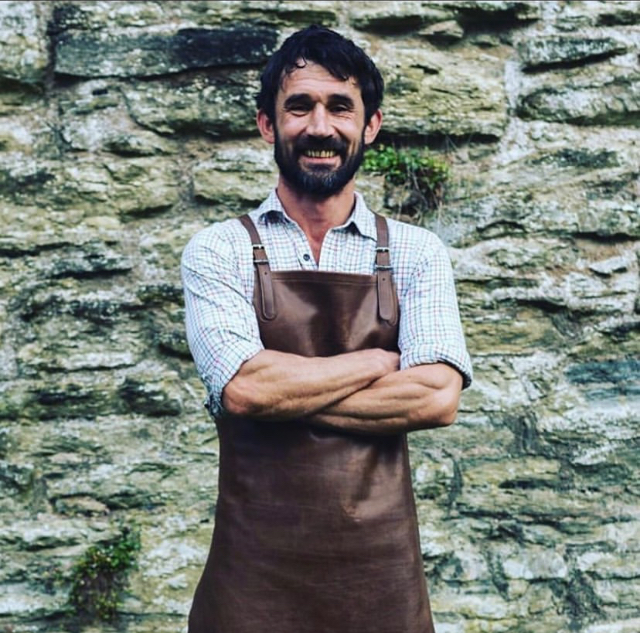Shropshire Salumi
Founded by self confessed charcuterie enthusiast and all round 'foodie', Will Macken, Shropshire Salumi fast evolved from the worktops of Will's kitchen to a sizely custom built curing room that enabled him to supply local farms shops and market stalls around Shropshire. They produce full flavoured, richly textured handmade salamis and cured meats the traditional way, taking pride in the quality of ingredients, artisan methods and their nose to tail ethos.
All the pork used is outdoor reared Gloucester Old Spot sourced within 2 miles of the premises, all spices are sourced from ethical suppliers and are of the finest quality and traditional casings are used for the products.
https://www.shropshire-salumi.co.uk
Twitter: @Shrops_Salumi
Instagram: @Shropshiresalumi
Mobile: 0779 627 2007
Behind the Scenes with Will Macken of Shropshire Salumi
This year has brought some big changes for us all, how did that impact on your business?
It has, but being a one man band made it a lot easier to adapt to change. I didn’t have any complications of what to do with staff and found it quite easy to change as I needed to. I have my own workshop which meant there were no visitors. Normally all products would be sent out to restaurants and markets. Within a week, however, I’d lost all normal avenues for revenue: farmers markets, pubs restaurants. Then, within a couple of weeks, I started pushing home delivery on Instagram. This worked really well.
I think that gradually over the year, it has sunk in how much money people spend in supermarkets and in restaurants. Then, spending having to stay at home all the time, they have sought out more premium products to get better quality and thought about who and how these are supplied.
In my business I hadn’t traditionally used social media at all. For the first 18 months I really just went out there, talking to customers and building relationships. That way I could convey the passion of why and how I make my salumi face to face. It helped lay the foundations and built a community. It also helped to build up an understanding of my clients as well as helping the consumer to be more knowledgeable and understand the ethics behind it. Now, five years later, it plays a much bigger role and over lockdown it was lovely to have customers contacting me asking what was available and keen to continue accessing a supply.
What would you say were the positive things to come out of this?
I feel it has been positive, actually. It is what it is and as a one man band you have to just look for the opportunities. Ultimately, it’s down to the product, the passion I have about it. Having the face-to-face contact has been a real bonus.
One of the great things about Ludlow are the contacts you make through building these face-to -face relationships. Tomorrow a contact with a customer, I met through the Local to Ludlow Market, is going to be bringing me a sow. He wanted it to go somewhere he knew and trusted and I will process it. Then two months ago fruit and vegetable growers Alison and Liam of Hare Hills Farm let me have two pigs. It’s a great way of getting good provenance!
You must spend quite a bit of time planning and trying to forecast the future?
Being at home has given me time to focus on things. I’ve had time to concentrate on finishing the workshops. I’ve just bought some more equipment, so I can now increase production. I want to hold on to wholesale trade but people are changing what they are doing so it’s adjusting to that.
I have got a website, but it’s basic and I don’t drive a lot of sales through that, it’s mostly through social media channels. I’m not sure if I want to concentrate on online sales as I prefer to build relationships. I think people have a real need to have more of a personal interface, face-to-face or phoning.
How do you see things in the coming months?
Well Brexit is there in the background but I’ve not felt any effects yet of that. It will probably prove to be a beneficial thing for me, as I expect not so much will be imported and what is might be more expensive. I don’t use anything imported goods.
I plan to work on reaching a wider audience and to continue working with suppliers and producers who share the same ethos such as Andy Link at The Riverside Inn, Aymestrey and CSONS at the Green Café amongst others.
What does it mean for you being a Slow Food Business Supporter?
Slow Food is the foundation of everything I do. I think now is the right time for Slow Food to open up and broaden their network. People have become so much more conscious of what and how they are eating. The seed has been sown. Slow Food could really jump on this and nurture it.
Before the pandemic I was going out and doing talks and workshops in schools. There are a number of key areas that schools can engage children with. So many things are interlinked with natural history, farming, wildlife and food. I was a Zoologist by trade, working in conservation - which was why I set up in business. I’ve always been involved with volunteering. Last Sunday I took my daughters to do some hedge laying with the Wildlife Trust.
There’s a Create and Cook competition running round schools at the moment. So, it would be interesting to look at Slow Food and its membership. Is there a possibility, for example, for Slow Food membership for children? It’s great to hear that the Taste Adventure workshops, run by Slow Food at Ludlow Food Festival for the past few years, have been so popular. Can we build on this and make Slow Food more accessible for young people? It’s fascinating to see how Wormbridge School in Oakengates have thrown out the tradtional syllabus. They have taken every subject and looked at it in relation to the world around us. For example, they can involve maths in how I sell my products, geography and nature in terms of where and how I produce food from the land the pigs are on and how they are reared; to the herbs and spices I add and where they come from. It means that now they are meeting the curriculum through all the things the children see and experience around them. They have even thrown out the Council caterers and employed a chef. They even grow a lot of own food, involving the children in different aspects of this. How this young generation learn and experience the world will be our future.
I’d love to be involved with a Slow Food visit and have already been talking to Dave of Fletchers Cider about the plans you’re making with him. We could do a cider and charcuterie tasting and perhaps think of ways we can get people being a bit hands on. Perhaps make a day of it? If we can organise some interesting events it’s a great advertisement for Slow Food and makes the most of the gradual shift in awareness about how, what and the orgin of our food and its impact. I’m more than happy to take a part in this.




